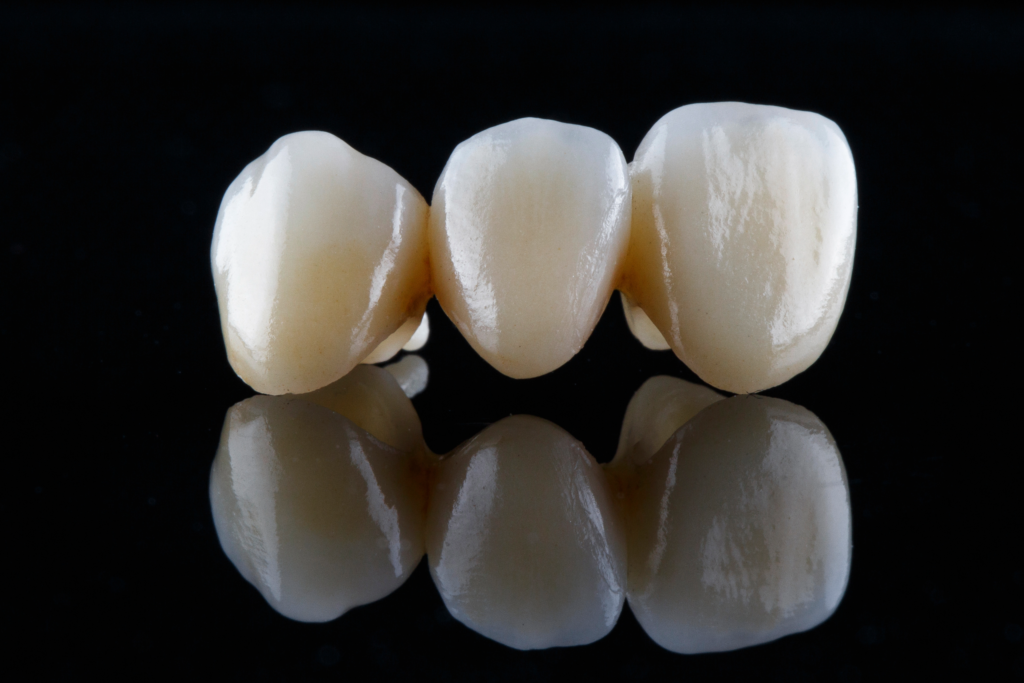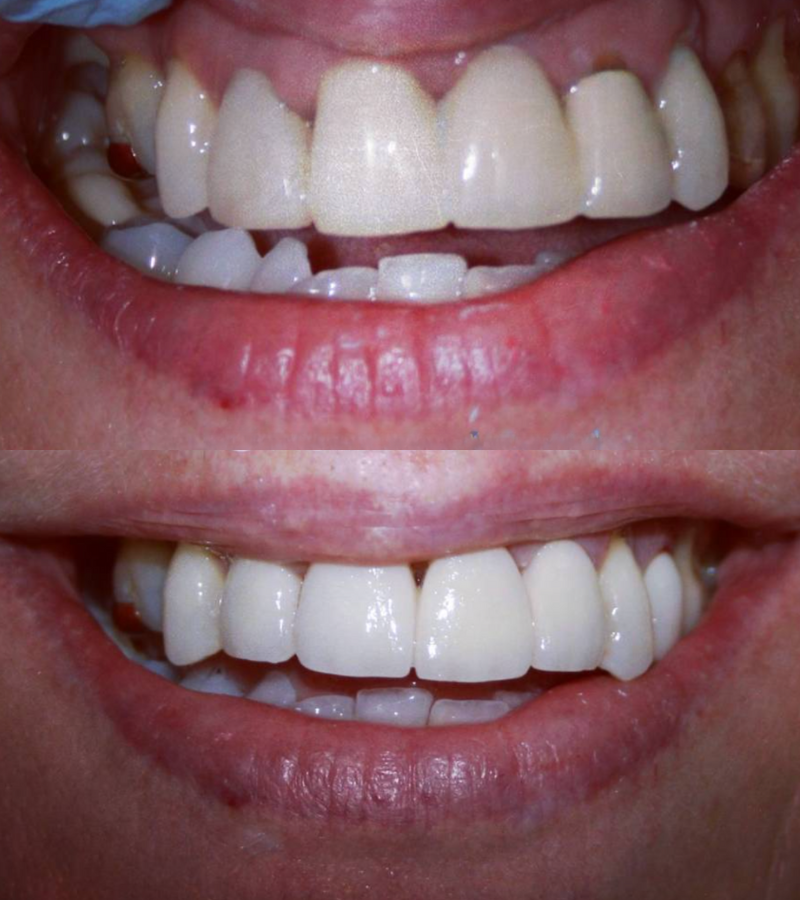
Bridging the gap for a complete smile
Dental Bridges in Knutsford
Dental bridges are a proven solution for replacing one or more missing teeth, restoring the look and function of your smile. Designed with precision, bridges provide stability, comfort, and a natural appearance.
What are dental bridges?
A dental bridge is a custom-made restoration that fills the gap left by missing teeth. It consists of one or more artificial teeth, supported by natural teeth or dental implants. Bridges are crafted to blend seamlessly with your smile while restoring your ability to chew, speak, and smile confidently.
When is a dental bridge used?
- Missing one or more teeth.
- Difficulty chewing or speaking due to gaps.
- Shifting or misalignment of adjacent teeth.
- A desire for a fixed, long-lasting solution over removable options.

The process of getting a dental bridge
1.
Assessment
Your dentist evaluates your oral health and discusses the best bridge option for your needs.
2.
Preparation
Supporting teeth are reshaped, and impressions are taken to create a custom-fit bridge.
3.
Temporary bridge
A temporary bridge is placed to protect the area while the permanent bridge is crafted.
4.
Fitting
The permanent bridge is securely placed and adjusted for a comfortable fit, restoring your smile and function.
Types of dental bridges available
Discover the perfect solution for missing teeth with the wide range of dental bridges available.
- Traditional bridges: Supported by crowns placed on adjacent teeth, ideal for gaps with strong supporting teeth.
- Cantilever bridges: Anchored on one side when only one adjacent tooth is available.
- Maryland bridges: A conservative option using a metal or porcelain framework bonded to the back of adjacent teeth.
- Implant-supported bridges: Anchored by dental implants, offering superior stability and durability.

Caring for your dental bridges
keep them and your smile healthy
- Brush twice daily and floss under the bridge using a special floss threader.
- Maintain regular dental check-ups to monitor your bridge and oral health.
- Avoid hard or sticky foods that could damage the bridge.
- Address any discomfort or issues promptly to ensure long-term success.
On the right you can see a transformation that features a custom bridge for the upper front teeth and a new crown, delivering a natural, radiant smile that improves both appearance and function.

— frequently asked questions —
Quick answers to your questions
How long does it take to get a dental bridge?
The process usually takes 2-3 visits over a few weeks. Initial visits involve preparing the supporting teeth, taking impressions, and placing a temporary bridge. The final bridge is fitted and adjusted during the last appointment.
How long do dental bridges last?
With proper care, dental bridges typically last 10-15 years or more. Maintaining good oral hygiene and attending regular dental check-ups are essential for longevity.
Are dental bridges comfortable?
Yes, dental bridges are designed to fit comfortably and function like natural teeth. While there may be a short adjustment period, most patients find them comfortable after getting used to them.
Can dental bridges look natural?
Absolutely! Modern dental bridges are crafted using materials like porcelain or ceramic that closely mimic the colour, texture, and translucency of natural teeth for a seamless appearance.
Can a dental bridge be repaired or replaced?
Yes, if a dental bridge becomes damaged or worn, it can often be repaired. If the damage is severe or the supporting teeth are compromised, a replacement bridge may be necessary.
Are dental bridges better than implants?
Both options have their advantages. Dental bridges are typically quicker and more cost-effective, while implants offer superior durability and preserve jawbone health. Your dentist can help determine the best option for your needs.
